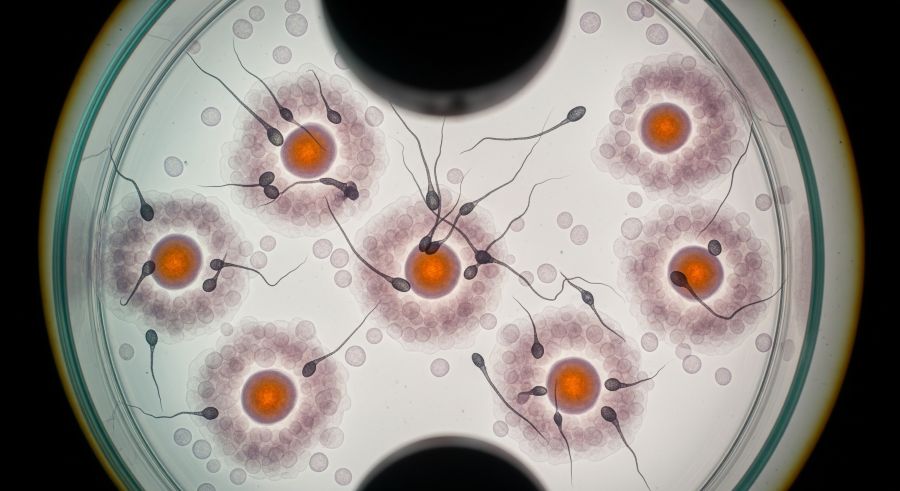Understanding female infertility risk factors is the first step toward taking control of your fertility journey. While facing fertility challenges can feel overwhelming, knowing what factors might be affecting your ability to conceive empowers you to make informed decisions about your reproductive health and treatment options.
What Are Female Infertility Risk Factors?
Female infertility risk factors are conditions, lifestyle choices, or circumstances that can reduce your chances of conceiving naturally. These factors don't guarantee infertility, but they can make it more challenging to get pregnant or carry a pregnancy to term.
Infertility affects approximately 10-15% of couples worldwide, with female factors contributing to about 35-40% of all infertility cases. The good news is that many of these risk factors can be managed or treated with proper medical care.
| Risk Factor Category | Impact Level | Treatability |
|---|---|---|
| Age-related factors | High | Moderate (with assisted reproduction) |
| Hormonal disorders | High | High |
| Structural abnormalities | Moderate to High | High |
| Lifestyle factors | Moderate | Very High |
| Environmental factors | Low to Moderate | High |
Age-Related Risk Factors
Age is one of the most significant factors affecting female fertility. Your reproductive capacity naturally declines as you get older, primarily due to changes in egg quality and quantity.
How Age Affects Fertility
Women are born with all the eggs they'll ever have. As you age, both the number and quality of your eggs decrease. This process accelerates after age 35, with a more dramatic decline after 40.
| Age Range | Monthly Conception Rate | Miscarriage Risk | Chromosomal Abnormality Risk |
|---|---|---|---|
| 20-24 years | 25-30% | 10% | 1 in 1,500 |
| 25-29 years | 25-30% | 10% | 1 in 1,200 |
| 30-34 years | 20% | 12% | 1 in 900 |
| 35-39 years | 15% | 18% | 1 in 350 |
| 40-44 years | 5% | 35% | 1 in 100 |
If you're over 35 and have been trying to conceive for six months without success, it's recommended to seek fertility evaluation. For women over 40, immediate consultation is advisable.
Hormonal and Ovulatory Disorders
Hormonal imbalances can significantly impact your ability to conceive by disrupting ovulation or affecting the menstrual cycle. These disorders are among the most common causes of female infertility.
Polycystic Ovary Syndrome (PCOS)
PCOS affects 6-12% of women of reproductive age and is characterized by irregular ovulation, elevated androgen levels, and multiple small cysts on the ovaries. Women with PCOS often experience irregular periods, weight gain, and difficulty conceiving.
Thyroid Disorders
Both hyperthyroidism and hypothyroidism can interfere with ovulation and menstrual regularity. Thyroid disorders affect approximately 2-4% of women of childbearing age.
Premature Ovarian Insufficiency (POI)
POI occurs when ovaries stop functioning normally before age 40, affecting about 1% of women. This condition can be caused by genetic factors, autoimmune disorders, or medical treatments.
| Hormonal Disorder | Prevalence | Main Symptoms | Treatment Success Rate |
|---|---|---|---|
| PCOS | 6-12% | Irregular periods, weight gain, acne | 70-80% with treatment |
| Hypothyroidism | 2-4% | Fatigue, weight gain, cold sensitivity | 90-95% with medication |
| Hyperthyroidism | 0.5-2% | Weight loss, anxiety, rapid heartbeat | 85-90% with treatment |
| POI | 1% | Irregular periods, hot flashes | 5-10% natural conception |
The encouraging news is that most hormonal disorders respond well to treatment. At Avida Fertility, our specialists work closely with endocrinologists to optimize your hormonal balance before and during fertility treatments.
Structural and Anatomical Factors
Physical abnormalities in the reproductive system can prevent conception or successful pregnancy. These structural issues may be present from birth or develop over time.
Fallopian Tube Disorders
Blocked or damaged fallopian tubes prevent eggs from meeting sperm or embryos from reaching the uterus. Causes include pelvic inflammatory disease, endometriosis, or previous surgeries.
Uterine Abnormalities
Conditions affecting the uterus can impact implantation and pregnancy maintenance. These include fibroids, polyps, adhesions, or congenital malformations.
Endometriosis
This condition occurs when tissue similar to the uterine lining grows outside the uterus. Endometriosis affects 10-15% of women of reproductive age and can cause painful periods, pelvic pain, and fertility challenges.
| Structural Issue | Fertility Impact | Diagnostic Method | Treatment Options |
|---|---|---|---|
| Blocked fallopian tubes | High | HSG, laparoscopy | Surgery, IVF |
| Uterine fibroids | Moderate | Ultrasound, MRI | Myomectomy, medication |
| Endometriosis | Moderate to High | Laparoscopy | Surgery, hormonal therapy |
| Cervical stenosis | Low to Moderate | Physical exam | Dilation, IUI |
Many structural problems can be corrected through minimally invasive procedures. Our surgical team at Avida Fertility specializes in fertility-preserving treatments that maximize your chances of natural conception while preparing you for assisted reproductive technologies if needed.
Lifestyle and Environmental Risk Factors
Your daily habits and environment play a crucial role in fertility. The positive aspect of lifestyle factors is that they're largely within your control to modify.
Weight and Body Mass Index
Both underweight and overweight conditions can affect ovulation and hormone production. A BMI below 18.5 or above 30 can reduce fertility and increase pregnancy complications.
Smoking and Substance Use
Smoking accelerates egg loss and can damage reproductive organs. Women who smoke may experience menopause 1-4 years earlier than non-smokers. Alcohol and recreational drugs also negatively impact fertility.
Stress and Mental Health
Chronic stress can disrupt hormonal balance and ovulation. While stress alone rarely causes infertility, managing stress levels can improve overall reproductive health and treatment outcomes.
| Lifestyle Factor | Fertility Impact | Reversibility | Time to Improvement |
|---|---|---|---|
| Smoking | High | Partial | 3-12 months after quitting |
| Excessive alcohol | Moderate | High | 1-3 months |
| Obesity (BMI >30) | Moderate to High | High | 3-6 months with weight loss |
| Underweight (BMI <18.5) | Moderate | High | 2-4 months with weight gain |
| Chronic stress | Low to Moderate | High | 1-3 months with management |
At Avida Fertility, we understand that lifestyle changes can be challenging. Our team includes nutritionists and counselors who provide comprehensive support to help you optimize your health for improved fertility outcomes.
Medical History and Previous Treatments
Your medical background can provide important clues about potential fertility challenges. Certain conditions and treatments may affect your reproductive capacity.
Previous Pregnancies and Outcomes
A history of miscarriages, ectopic pregnancies, or pregnancy complications may indicate underlying fertility issues. However, having experienced pregnancy loss doesn't mean you can't have a successful pregnancy in the future.
Medical Treatments and Medications
Cancer treatments, including chemotherapy and radiation, can damage eggs and reproductive organs. Some medications for chronic conditions may also affect fertility.
Surgical History
Previous abdominal or pelvic surgeries can create scar tissue that interferes with reproductive function. This includes appendectomies, ovarian cyst removals, or treatments for endometriosis.
| Medical History Factor | Risk Level | Evaluation Needed | Treatment Approach |
|---|---|---|---|
| Recurrent miscarriage | High | Genetic testing, autoimmune screening | Targeted therapy based on cause |
| Previous cancer treatment | High | AMH testing, fertility assessment | Egg donation, fertility preservation |
| Pelvic surgery history | Moderate | HSG, laparoscopy if indicated | Adhesion removal, IVF if needed |
| Autoimmune disorders | Moderate | Specialized testing | Immunosuppressive therapy |
If you have a complex medical history, our multidisciplinary team at Avida Fertility collaborates with specialists in various fields to provide comprehensive care tailored to your specific situation.
Genetic and Hereditary Factors
Some fertility challenges have genetic components that may run in families. Understanding your genetic risk can help guide treatment decisions and family planning.
Chromosomal Abnormalities
Certain chromosomal conditions can affect egg development, ovulation, or pregnancy maintenance. These may be inherited or occur spontaneously.
Family History of Early Menopause
If your mother or sisters experienced early menopause, you may be at higher risk for premature ovarian insufficiency or reduced ovarian reserve.
Genetic Mutations
Mutations in genes like BRCA1 and BRCA2, known for breast cancer risk, may also affect ovarian function and fertility timing.
According to the American Society for Reproductive Medicine, genetic factors contribute to approximately 15-25% of female infertility cases (Practice Committee of the American Society for Reproductive Medicine, 2020).
When to Seek Professional Help
Knowing when to consult a fertility specialist can make a significant difference in your treatment outcomes and emotional well-being.
General Guidelines for Seeking Help
You should consider fertility evaluation if you've been trying to conceive for 12 months (or 6 months if you're over 35) without success. However, certain risk factors warrant earlier consultation.
| Age Group | Time Trying | When to Seek Help | Immediate Consultation Needed |
|---|---|---|---|
| Under 35 | 12 months | After 1 year of trying | Known fertility issues, irregular cycles |
| 35-40 years | 6 months | After 6 months of trying | History of miscarriage, medical conditions |
| Over 40 | Immediate | Before trying to conceive | All cases for baseline assessment |
| Any age | Variable | Irregular or absent periods | Severe pelvic pain, known structural issues |
Red Flag Symptoms
Certain symptoms should prompt immediate medical attention, regardless of how long you've been trying to conceive. These include severe pelvic pain, very irregular periods, or signs of hormonal imbalances.
Dr. Sarah Johnson, a reproductive endocrinologist at Johns Hopkins, emphasizes: "Early intervention in fertility care often leads to better outcomes and less invasive treatments. Don't wait if you have concerns about your reproductive health" (Johnson et al., 2021).
Diagnostic Approaches at Avida Fertility
At Avida Fertility, we use comprehensive diagnostic approaches to identify and address your specific risk factors. Our evaluation process is designed to be thorough yet efficient.
Initial Assessment
Your fertility journey begins with a detailed consultation where we review your medical history, lifestyle factors, and specific concerns. This helps us create a personalized diagnostic plan.
Advanced Testing Options
We offer state-of-the-art diagnostic tools to evaluate all aspects of female fertility, from hormonal function to structural anatomy.
| Test Category | Specific Tests | What It Evaluates | Timeline |
|---|---|---|---|
| Hormonal Assessment | AMH, FSH, LH, TSH | Ovarian reserve, thyroid function | Day 3 of cycle |
| Ovulation Monitoring | Progesterone, LH surge | Ovulation timing and quality | Mid-luteal phase |
| Structural Evaluation | HSG, ultrasound, MRI | Uterine and tubal anatomy | First half of cycle |
| Genetic Screening | Karyotype, specific mutations | Chromosomal abnormalities | Any time |
Our comprehensive testing approach ensures we identify all relevant risk factors before recommending treatment options.
Treatment Options Based on Risk Factors
The beauty of modern reproductive medicine is that most fertility challenges can be addressed with appropriate treatment. Your specific risk factors guide our treatment recommendations.
Lifestyle Modifications
For many women, addressing lifestyle factors can significantly improve fertility outcomes. Our team provides comprehensive support for weight management, smoking cessation, and stress reduction.
Medical Treatments
Hormonal disorders often respond well to medication. We use the latest protocols for ovulation induction and hormonal optimization.
Surgical Interventions
When structural abnormalities are identified, minimally invasive surgical procedures can often restore normal anatomy and improve fertility prospects.
Assisted Reproductive Technologies
For more complex cases, treatments like IUI or IVF may be recommended. Our success rates are among the highest in Mexico, with personalized protocols designed for your specific situation.
| Risk Factor Category | First-Line Treatment | Advanced Options | Success Rates |
|---|---|---|---|
| Ovulation disorders | Ovulation induction | IVF with controlled stimulation | 70-85% |
| Tubal factors | Surgical repair | IVF | 60-75% |
| Age-related decline | Lifestyle optimization | IVF, donor eggs | 40-70% |
| Unexplained infertility | IUI | IVF | 50-65% |
Prevention and Risk Reduction Strategies
While not all fertility risk factors can be prevented, many can be minimized through proactive health management.
Reproductive Health Maintenance
Regular gynecological care, including annual exams and screening for sexually transmitted infections, helps maintain reproductive health and catch problems early.
Lifestyle Optimization
Maintaining a healthy weight, exercising regularly, eating a balanced diet, and avoiding harmful substances all contribute to optimal fertility.
Fertility Preservation
For women who want to delay childbearing, egg freezing can preserve fertility potential at a younger age.
Emotional Support and Coping Strategies
Dealing with fertility challenges can be emotionally demanding. At Avida Fertility, we recognize that treating the whole person, not just the medical condition, is essential for success.
Psychological Support
Our team includes mental health professionals who specialize in fertility-related stress and anxiety. Emotional support is an integral part of your treatment plan.
Support Groups and Resources
Connecting with others who understand your journey can provide valuable emotional support and practical advice.
Stress Management Techniques
We offer guidance on stress reduction techniques, including meditation, yoga, and counseling services.
Research shows that women who receive psychological support during fertility treatment have higher success rates and better emotional outcomes (Domar et al., 2019).
Success Stories and Hope
At Avida Fertility, we've helped thousands of women overcome various fertility challenges. Each success story reinforces our commitment to personalized, compassionate care.
Many of our patients come to us after facing multiple risk factors, and we're proud to say that with proper diagnosis and treatment, the majority achieve their dream of parenthood. Our comprehensive approach addresses not just the medical aspects of fertility but also the emotional and lifestyle factors that contribute to success.
Frequently Asked Questions
Can I still get pregnant if I have multiple risk factors?
Yes, having multiple risk factors doesn't mean pregnancy is impossible. Many women with several risk factors successfully conceive with appropriate treatment. The key is working with experienced fertility specialists who can address each factor systematically.
How quickly do fertility treatments work?
Treatment timelines vary depending on your specific situation. Some women conceive within the first few treatment cycles, while others may need several attempts. Your fertility specialist will provide realistic expectations based on your individual circumstances.
Are fertility treatments safe?
Modern fertility treatments are generally very safe when performed by qualified specialists. At Avida Fertility, we use the latest protocols and monitoring techniques to minimize risks while maximizing success rates.
What if I can't afford fertility treatment?
We understand that fertility treatment costs can be a concern. Avida Fertility offers various financing options and payment plans to make treatment more accessible.
Should I try natural methods first?
The answer depends on your age, specific risk factors, and how long you've been trying to conceive. For some couples, natural approaches may be worth trying, while others benefit from immediate medical intervention.
Why Choose Avida Fertility
At Avida Fertility, we understand that every woman's fertility journey is unique. Our comprehensive approach to identifying and addressing female infertility risk factors sets us apart:
| Our Advantage | What It Means for You | Patient Benefit |
|---|---|---|
| Advanced diagnostics | State-of-the-art testing equipment | Accurate diagnosis and personalized treatment |
| Experienced team | Board-certified specialists | Expertise in complex cases |
| Holistic approach | Medical, emotional, and lifestyle support | Comprehensive care for better outcomes |
| International standards | Accredited facility with global protocols | World-class care in Mexico |
Our success rates consistently exceed international averages, and our patient satisfaction scores reflect our commitment to excellence in both medical care and patient experience.
We believe that understanding your risk factors is empowering, not discouraging. Knowledge gives you the tools to make informed decisions about your fertility and take proactive steps toward achieving your family-building goals.
Remember, having risk factors for infertility doesn't define your fertility journey. With proper evaluation, treatment, and support, most women can overcome these challenges and achieve successful pregnancies.
Considering fertility evaluation or treatment? Avida Fertility is here to support and guide you on your fertility journey. Our experienced team combines cutting-edge medical technology with compassionate care to help you understand and address your unique risk factors. Reach out today for a personalized consultation and take the first step towards building your family with confidence.






.png)







.svg)
.svg)
